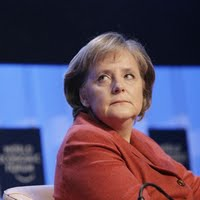Among the questions raised by Germany's elections in September 2009 was the impact Chancellor Angela Merkel's new coalition partners would have on Berlin's foreign policy orientation. A number of developments since then have provided hints of areas of continuity, as well as others of potential change and even internal conflict.
Among the areas of continuity is Germany's approach to the internal politics of the European Union. In the recent race to secure the EU's top post-Lisbon Treaty jobs, Berlin remained circumspect, preferring to leave the more powerful portfolios to other countries. The main struggle ended up being between London and Paris, with London getting the newly created post of European foreign minister (officially the high representative for external affairs), while Paris obtained the post of commissioner for Internal Market, a powerful position with oversight of the EU's internal economy.
By contrast, Berlin refrained from promoting its national candidates for the EU's most important jobs designated so far, instead contenting itself with the position of commissioner for Energy. Though not regarded as one of the European Commission's main posts, it has strategic significance for Germany because of Berlin's energy dependence on Russia.

